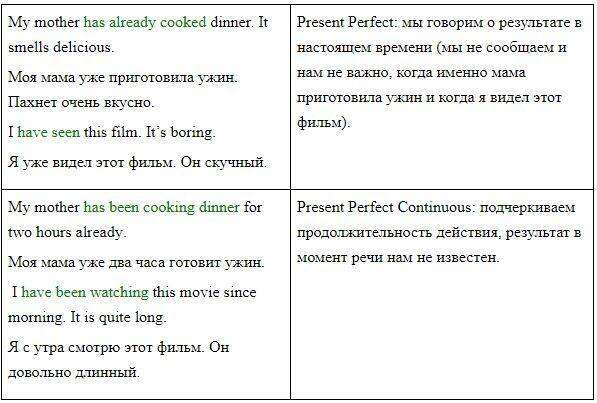1. Tom has been learning for 5 years.
2. We have known her for many years.
Также, разница между Present Perfect и Present Perfect Continuous заключается в том, что некоторые глаголы не употребляются в форме Continuous (то есть они выражают длительность, но не имеют окончания -ing). К ним относятся глаголы, обозначающие ментальный процесс (know — знать, like — нравиться, understand — понимать, believe — верить) и глаголы, которые выражают чувства и эмоции (hear — слышать, smell — нюхать, taste — чувствовать вкус, hate — ненавидеть, want — хотеть.
3. Lena and Pete have been watching films for 3 hours.
4. We haven’t been having a holiday for 5 years.
5. He has been teaching at this university for twenty years.
6. Mary and Sue have been collecting stamps for 3 years.
1. We have been reading stories in the park for three hours.
2. I have watched three films.
3. Granny has been knitting in the living room since morning.
4. Ben has been travelling round Europe for 5 weeks.
5. He has visited already 10 countries.
1. The boy has been playing tennis since 3 o’clock.
2. Is it still snowing? No, it have stopped.
3. The men have been fishing for 4 hours.
4. How many books have you read?
5. He has been hated oranges since his childhood.
